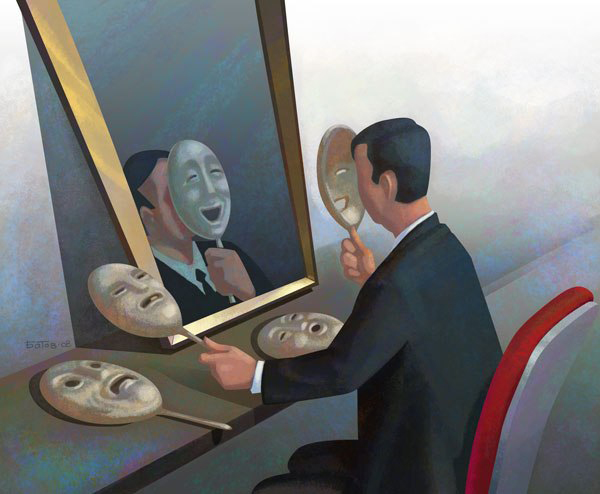The “fighting species’” characteristic features
Character plays a special role in any man’s professional and human qualities. For example, as an editor for many years, I can testify that there are wonderful people with deep knowledge, who, however, cannot fully work in our sphere for they do not have a journalist’s character, incidentally, it is the thing that is not so much liked by the political figures and officials. Or, it’s not hard to notice that the three presidents of Armenia have run approximately the same domestic and foreign policy, but they have different characters, which is reflected by the attitude of criticism to their address. Approximately with similar logic, we can say that regardless of the nature of their business, there are cabinet scientists by character, artists, bureaucrats, political party members, militiamen, homeless persons and so on.
To the point, let’s say, a “militiaman” by character can work as a human right defender, and a homeless person by character can be a millionaire. In the formation of character, much depends on the environment, world outlook and the level of ambitions. If, for instance, a person strives to “reign” and “rule” over something starting from the cat in his house and ending with the whole world, hardly he would have a character of an office scientist. If the man by character is a “fighting species”, he will definitely try coming out a “winner” in all situations, being sure that this “winning” will add to his weight, will increase his meaning and will raise his self-appraisal.
Such a person will make the greatest scandal for the wrong placement of the plate at home for he views each situation in the contrast of “winning-losing”. If he is not the one who has the “final say” in the dispute, but his spouse or mother-in-law, then he has “lost” and his “rival” is the “winner”. If the latter is a “fighting species” too, then constant fighting is ensured. The “fighting species” are common on the internet too, if there are more than 10 comments under any status or material, then you can almost be sure that the authors for most of them are two people who are arguing with each other.
The “part-member” is the subspecies of the “fighting species”. I would like to emphasize one more time that the partisan by character may not be a party member and vice-versa, there are party members or even leaders (e.g., Raffi Hovhannisyan) who are not partisans by character. In the party member’s character, the idea of hierarchy is also added to the “fighting species”. In other words, if the bride or mother-in-law are “fighting” exclusively “for their own pleasure,” then the party members are doing it in order to please their supervisors. “Well, boss, how well did I bash them?” Depending on the sharpness of the vocabulary, the party boss is either pleased or displeased. The boss, of course, can also direct as to which specific words should be used to “crush the enemy”.
And if it turns out that you have not cursed your “enemy” with the “right words”, or even worse, you have said any semi-positive word about him, then you can place your “party-membership card on the table.” All these manifestations of character are stemming from the fact, in my opinion, that the “fighting species” people take the game and its shaped strict conventional rules too seriously and close to the heart. More precisely, they mistakenly identify the game with the life in itself. In the end, let me bring a non-identifying example. One of Persian shah’s visited England, and as a “cultural program”, he was invited to a hippodrome to watch the race. Shah refused, “I already know that some of the horses run faster than the others.”
Aram ABRAHAMYAN,
Aravot daily




















































